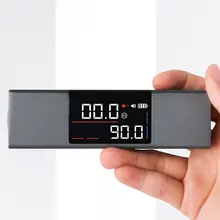Understanding Diaphragm Pressure Gauges
Diaphragm pressure gauges are precision instruments designed for the measurement of pressure with high accuracy. The diaphragm for pressure measurement is a flexible membrane that separates the gauge's internal mechanisms from the process fluid, making it ideal for use in industries where purity and corrosion resistance are paramount. These gauges are widely recognized for their versatility and durability in various applications.
Types and Features of Diaphragm Pressure Gauges
The diaphragm type pressure gauge comes in several forms, each tailored to specific measurement needs. The pressure gauge with diaphragm seal is particularly suited for handling corrosive media, as the seal protects the measuring system from the process fluid. In contrast, the chemical seal pressure gauge is designed for use in the chemical industry, where aggressive substances are common. For applications requiring high precision, the capacitance diaphragm gauge offers enhanced sensitivity and accuracy.
Applications of Diaphragm Pressure Gauges
Diaphragm pressure gauges serve a critical role in monitoring and controlling process pressures. They are essential in sectors like food and beverage processing, petrochemical refining, and oil and gas operations. The diaphragm seal for pressure transmitter variant is often employed in situations where the process medium cannot come into contact with the transmitter's internal parts, ensuring safety and longevity of the equipment.
Advantages of Using Diaphragm Pressure Gauges
The primary advantage of a diaphragm pressure gauge is its ability to provide accurate readings in harsh environments. The diaphragm acts as a barrier, preventing sediment, viscous fluids, and particulates from clogging the mechanism. This design not only extends the life of the gauge but also ensures consistent performance. The diaphragm pressure gauge working principle allows for measurements in a wide range of pressures, from very low to high, without compromising on precision.
Selection Considerations for Diaphragm Pressure Gauges
When selecting a diaphragm pressure gauge, factors such as media compatibility, pressure range, and environmental conditions are crucial. For instance, a flange type pressure gauge may be preferred for easy mounting in industrial settings. Brands like Wika diaphragm pressure gauge and diaphragm seal Ashcroft are known for their reliability and can be found in various configurations to suit specific requirements.
Maintenance and Durability
Maintenance of diaphragm pressure gauges is straightforward, owing to their simple yet robust construction. The durability of these gauges is enhanced by the diaphragm's ability to absorb pulsations and pressure spikes, which might otherwise damage more delicate components. Regular checks and calibrations ensure that the diaphragm strain gauge maintains its accuracy over time, providing reliable service in demanding applications.
































 浙公网安备 33010002000092号
浙公网安备 33010002000092号 浙B2-20120091-4
浙B2-20120091-4